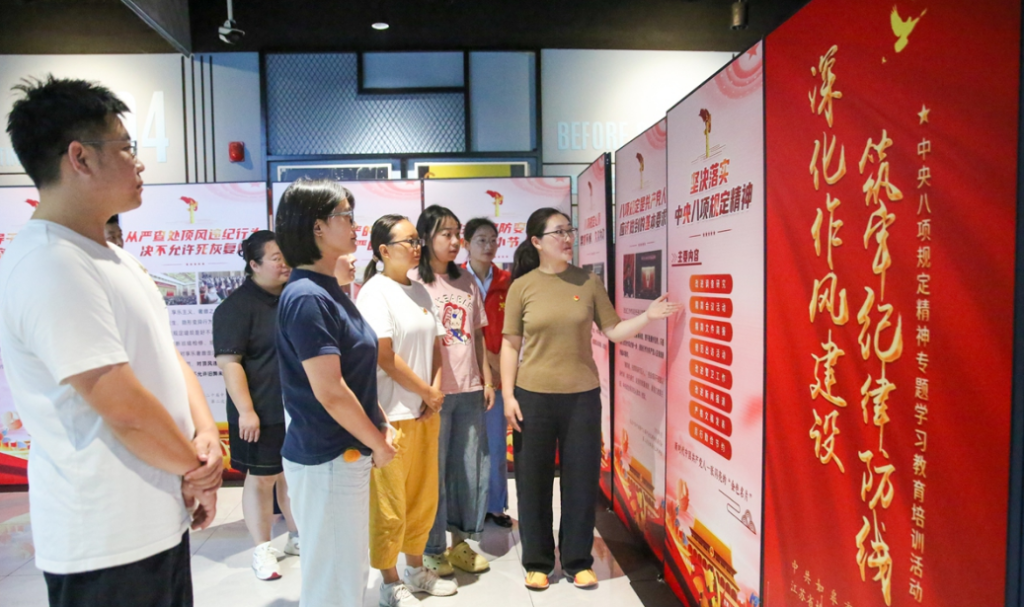
China is proving that the path to sustained development can only be guaranteed by rigorous party self-governance. Far from being symbolic, the efforts of the Communist Party of China (CPC) in this regard represent a systemic drive to strengthen governance from within. In a world where entrenched interests often obstruct change, the ability to reform has become critically important for any country seeking better development.
People first vs capital first
Unlike Western political parties, which often cater to specific interest groups, the CPC’s mission is to serve the people, not capital. And its ability to deliver hinges on its ability to reform itself, including the willingness to confront powerful vested interests, as the Party has declared that it would rather “offend a few thousand than fail 1.4 billion.” It is this commitment to selflessness that underpins the CPC’s confidence and resolve in pursuing self-renewal.
Convinced that good conduct is the lifeblood of sound governance, the CPC has launched an unprecedented anti-corruption campaign that is anchored in the central party leadership’s eight-point decision on improving conduct and targets formalism, bureaucracy, hedonism and extravagance. The results achieved so far have been widely recognized, both domestically and internationally, as a symbol of China’s political discipline, the execution of which requires great political courage and resilience that few political entities in the world are showing today.
In contrast, US politics is deeply entangled with capital. The two major parties are widely seen as representing the elites, influenced heavily by corporate money and lobbying groups. As Nobel laureate Joseph Stiglitz noted, “In terms of wealth rather than income, the top one percent control 40 percent.” Former Singaporean diplomat Kishore Mahbubani pointed out that the US “looks more and more like a plutocracy, where a few rich people are disproportionately powerful.” Many analysts are saying that the US political system has been hijacked by the very rich – those who pay decide.
If the US political system were a public corporation, its board is dominated by a tight circle of financial institutions, defense contractors and oil majors whose votes are weighted by dollars, not ballots.
As Bloomberg has said bluntly, the US political system “runs on money – and lots of it.” During the 2024 election cycle, more than 11,000 political groups spent a staggering $14.7 billion trying to influence the result. The super PACs, though not able to donate directly to candidates, are allowed by law to spend without limit on advertising. In practice, they operate as capital’s campaign team, flooding every screen and mailbox and drowning out the voices of the majority of ordinary people.
Pragmatism vs idealism
The CPC emphasizes a pragmatic, result-oriented approach to governance. It has built an internal inspection system that operates like a political MRI – scanning for misconduct and enforcing accountability with precision. The system goes the extra mile by combining detective diagnosis with disciplinary authority to hold those responsible to account and enforce corrective measures. Operating as both a “scanner” and a “scalpel,” it is a unique model to ensure the health of the political ecosystem.
Besides inspections, the CPC has also put in place a comprehensive oversight system that includes regular criticism and self-criticism sessions among Party members, robust whistleblower protection mechanisms, and an increasingly sophisticated data-driven supervision network. These measures, working in concert, have led to greater transparency of government work and enhanced deterrence against corruption.
The eight-point decision, introduced in 2012, has become a cornerstone of political discipline in China.
In contrast, US governance is not only far from being realistic and pragmatic, but sometimes goes in the opposite direction, pursuing ideological conformity and prioritizing political correctness over practical outcomes. Driven by such a mind-set, the ruling class in the US is preoccupied with procedural justice and partisan agendas, increasingly detached from the urgent needs of the people. As a result, pressing societal issues like gun violence or healthcare reform have remained unresolved.
A case in point is the One Big Beautiful Bill Act, which threatens to strip millions of Americans of healthcare coverage. The bill has sparked widespread concern and criticism, with many arguing that “the bill emphasizes a regressive approach that will further widen the country’s existing wealth gap.”
Adapting to changes vs trapped in the past
There is a famous exchange in 1945, when Chinese educator Huang Yanpei asked Comrade Mao Zedong how the Party could escape the historical cycle of rise and fall. Mao responded: “Let the people supervise the government.” Today, on top of the external oversight that remains vital, the Party has come up with a second answer: self-reform.
Over the past decade, the Party has systematically embedded self-improvement and self-correction into its governance framework. Much like a company that must innovate to survive, a ruling party too must evolve to stay effective.
Throughout its history, the CPC has shown a remarkable capacity for strategic recalibration, navigating a path from rural-based revolution to reform and opening-up and now to comprehensive modernization. Such evolution reflects a constant readiness to adapt.
In contrast, the US political system often appears mired in systemic gridlock. The separation of powers, originally designed for checks and balances, has become a recipe for stalemate, where any major reform must go through multiple layers of opposition. As a result, reform plans either stall at the outset or are watered down beyond recognition. Lawmaking is now a zero-sum contest in which resistance is reflexive and compromise is rare.
History progresses in waves, not straight lines. Beijing has made self-reform a habit; the world now watches to see if Washington can do the same.
